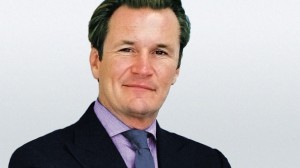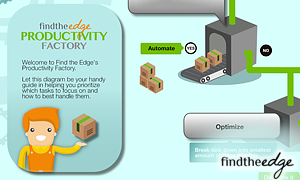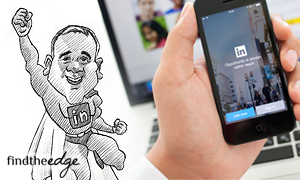 In the first installment of a three-part interview, Kenny Goodman speaks to the former CEO of SThree Recruitment, Russell Clements.
In the first installment of a three-part interview, Kenny Goodman speaks to the former CEO of SThree Recruitment, Russell Clements.
Russell gives the inside scoop on how they grew SThree from humble beginnings into a world-renowned brand, and also provides some invaluable advice for anyone looking to grow their own business fast.
Listen to the interview or download below:
Here are some of the discussions between Kenny and Russell:
00.36 – When and where did it all start?
03:42 – Russel says there was no plan for world domination at the beginning, and that they were operating on a shoestring budget with no real business plan.
05:10 – “I started on the same day Sir Alex Ferguson joined Manchester United – November 6, 1986”
05:40 – “Our first technical investment was when I persuaded Bill to spend, what was at the time a lot of money, on a fax machine. To begin with we literally got CVs through the post and advertised in the trade press.”
07:25 – Discusses how they used to manage their candidates and clients.
08:10 – “It was a highly manualised system. It's an interesting point really. If you compare it with today, the real big difference between the industry now and then is that you now have to deal with this sort of tsunami of information, which you didn't have to back at the time, because there was no sort of mechanism by which people could communicate on a mass scale.”
08:38 – Did bigger competitors have a technological advantage?
09:50 – How big did the company get at its peak? Around 2,500 staff. 66 offices in 20 countries.
10:24 – How did it get this successful? “Our core working hours were 9-9, Monday to Thursday and 9-7 Thursday to Friday.”
11:24 – “We were a small company of young people who nevertheless took work very seriously and worked very hard. We had very high professional standards but, on the other hand, we also had a laugh.”
12:30 – What about your recruitment ethos? Kenny and Russell discuss Robert Philby's philosophy (see interview here)
17:57 – When was your biggest period of growth?
19:06 – “This is critical for anyone thinking about how you build in the medium and long-term. We had a very good platform in that we hired very good people from early on and we kept them.”
19:30 – Explains how the company didn't splash the cash around when they were experiencing growth, so were better equipped to deal with recessionary times than competitors.
21:57 – What big mistakes did the business make in the early years? “With benefit of hindsight we could maybe have been a bit more ambitious. I think we over expanded in the UK in the sense that we had far more UK offices than we really needed to when we could have focussed internationally.”
24:35 – How did it feel to go from quite a small company to a bigger company? “The big transforming moment – I can think of two actually – was when I tried to introduce someone to an employee and realised I couldn't remember that person's name. The other was when we sold equity to a third party.”
26:35 – Kenny asks how it felt to realise he would never had to work again because the company had made so much money. “The wealth is great – because it means that you know what you've been working for over the past 15 years is never going to be a waste of your time – but if you're the sort of person to get yourself in that position in the first place, you are unlikely to be the kind of person who says I've done it now.”
28:20 – “If your motivation is only financial, that's always going to be a danger.”
29:15 – How did the founders reward other people within the group? Talks about how the founders gave equity away to those running the business.
30:20 – Says without the equity and ownership, people who are entrepreneurially minded would have gone off and done their own thing. Instead, they had ownership in the business, so could “scratch their entrepreneurial itch without leaving the company.”
32:30 – What advice would you give to start-ups today? “If you're going to say the only way to start up a business is to have an idea that no one's ever had before, then forget it. Who ever stumbles across that kind of unique opportunity?
“There's certainly the scope to work in markets where you're not the first mover but you execute better.”
“Do you have a proposition that you, yourself, really understand , and that you can articulate to staff and customers? That doesn't have to be unique, but there has to be something unique about the way you're doing it.”





